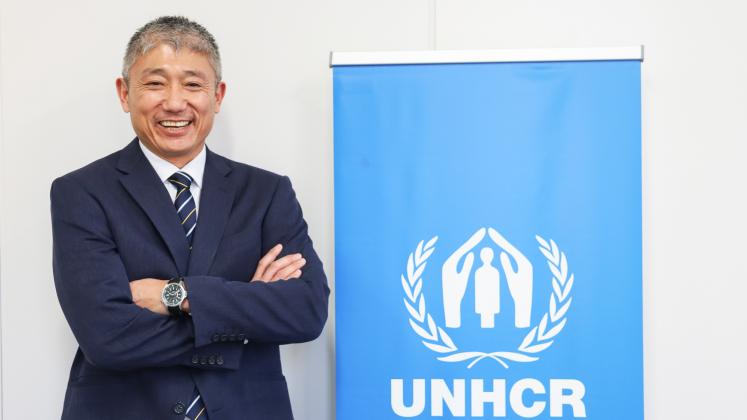On 16 January 2024, UNU will host “The SDGs and Forced Displacement: The Last One Percent”, a BIG IDEAS Dialogue with Mr. Ayaki Ito, UNHCR Representative in Japan. This online event will be held via Zoom webinar at 18:00 JST (UTC+9).
As of mid-2023, more than 110 million people have been forcibly displaced worldwide as a result of persecution, conflict, violence, and human rights violations. Central to the purpose of the 2030 Agenda for Sustainable Development is identifying and overcoming obstacles to allow marginalized populations to contribute to, and benefit from, inclusion in sustainable social and economic development processes. The SDG commitment of “leaving no one behind” cannot be achieved without viable solutions for people displaced across the world. This event will highlight displacement as a peace and development agenda and explore the necessity of the inclusion of refugees, internally displaced people and stateless people to achieve the Sustainable Development Goals.
Mr. Ito will join UNU Senior Vice-Rector Sawako Shirahase to discuss UNHCR’s engagement with States, host communities, civil society and key national service providers to promote inclusion that builds ground for refugees to be self-reliant and become valuable members of their communities.
Please note this event will be in English; Japanese interpretation will not be provided. Advance registration by 15 January is required. Registrants will receive an email on the day of the event with a link to attend via Zoom webinar.
About the Speaker
Mr. Ayaki Ito began his role as the UNHCR Representative in Japan in January 2023. In this role he leads the organization in growing key relationships with the Government of Japan, municipalities, and the public and private sectors to advocate for refugee causes both globally and in Japan.
Mr. Ito has devoted his entire UN career to helping refugees, and forcibly displaced and stateless people. After working as a UN Volunteer in an active conflict zone in Bosnia and Herzegovina, he was dispatched by UNHCR, the UN Refugee Agency, as a Junior Professional Officer (sponsored by the Government of Japan) to Myanmar where he was involved in the repatriation of Rohingya refugees from Bangladesh. He has worked with UNHCR in a variety of field and protection roles in Rwanda, Armenia, Sudan, Lebanon, and Somalia, as well as in donor relations with the World Food Programme based in Tokyo.
Later in his career, he returned to Myanmar as UNHCR Deputy Representative and also served as Deputy Director, Asia Pacific Bureau at UNHCR’s Geneva Headquarters. He has held the role of Representative at UNHCR Syria and UNHCR Lebanon.
Mr. Ito holds a Master of International Affairs (MIA) in International Human Rights Law from Columbia University. He is married with two children. He is fluent in English, French and Japanese.
About the series
The BIG IDEAS: SDGs Dialogue Series introduces the people, projects and organizations behind shared efforts to achieve the Sustainable Development Goals (SDGs). Each event features leading representatives and researchers from international organizations, UN agencies and UNU institutes to stimulate discussion on sustainable development issues and initiatives. The events provide a unique opportunity for young researchers, graduate students and civil society to become more familiar with SDG-related topics, ask questions and learn how they can contribute to local and global SDG progress.





